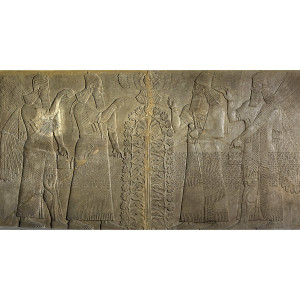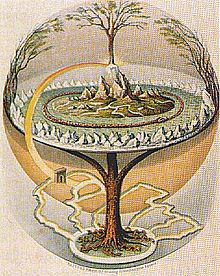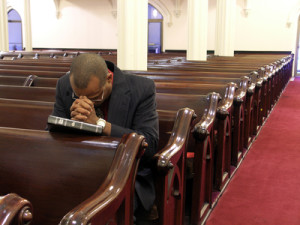True Gospel Repentance

At the very beginning of her reflections, the anonymous female author of Evidence for Heaven asked, “How may I come to be truly and infallibly assured of my salvation?” After describing how clear knowledge of our union with Christ assures us of salvation, she noted how evidence that the Holy Spirit lives in us includes our sincere love for God and others for God’s sake. She went on to portray how true Gospel repentance demonstrated that the Holy Spirit of God savingly inhabited our soul. “Wheresoever the Holy Spirit of God dwelleth savingly, in what soul soever he resideth, as a sanctifier, there he worketh true faith and Repentance.”
She quoted Zechariah 12:10, which says: “And I will pour out on the house of David and the inhabitants of Jerusalem a spirit of grace and plead for mercy, so that, when they look on me, on him whom they have pierced, they shall mourn for him.” This verse points out two things. First, the Holy Spirit savingly indwells whomever he resides in as a sanctifier; he works true faith and Repentance. Secondly, the presence of these two graces is a true and real testimony of the Holy Spirit’s saving habitation of that soul.
There are four things to note here. Although the grace of Repentance is distinct from faith, it is inseparably bound to justifying faith. The person who lacks either one, has neither. Second, these graces, namely faith, love and Repentance, are coequal. They are so saturated with each other that when one is true, they are all true to some measure.
Thirdly, although every grace of the Spirit is coequal, they actually arrange themselves in the following way: faith precedes love; faith and love precede Repentance. In this way, Repentance is a fruit of faith and love. Fourthly, renewing grace and glory are inseparably linked together. “He that hath the one shall certainly have the other, for this grace is the earnest of our inheritance.”
Repentance is a Divine quality wrought by the Spirit of God in the soul, whereby a sinner, is so touched in heart for his sinnes that he truly turns from them all unto the Lord.
This Repentance consists of two parts: contrition and conversion; humiliation and reformation. The person who would make a genuine trial of their Repentance must have both. But what is Evangelical (gospel) contrition, and how can you know whether or not you have it? It is a godly sorrow of the soul for all sin, apprehended by a gracious God who is displeased by sin. You may discern it by finding evidence of the following fruit.
Evangelical sorrow springs from the Love of God and hatred of sin. It increases the Love of God and hatred of sin in the soul. The Love of Christ constrains the soul to hate sin, to mourn and grieve for sin. The bitterness of this sorrow and grief for sin, sweetens the Love of God in Christ to the soul while it embitters the sense of sin.
Evangelical sorrow is mixed with faith. The mourner bewails his sin and rests on the mercy of God in Christ, the promises which are in him for the pardon of his sin and the mortification of his corruptions, and the grace to change. While faithful adherence is an inseparable concomitant of Evangelical sorrow, faith of evidence is not so. “He that sorrows for his sinne and rests not on Christ for the pardon of his sinne, his sorrow is legal, and not Evangelical, desperation and not contrition.”
Evangelical sorrow is mixed with hope. The mourner has hope of obtaining mercy, even in the deepest of his sorrow for sin. He does not despair, but seeks God for mercy. His sorrow drives him to God, not away from God. The Prodigal Son is an example of this. In his deepest distress he did not despair, but goes to his father for mercy. If he had not had hope of obtaining mercy, “he would never have gone to his father to seek it.”
Evangelical sorrow is a heart-humbling sorrow. It makes your heart humble and lowly. The more this sorrow lies within a heart, the greater is that heart’s humility. The less there is of this sorrow in your heart, the prouder it is; and the more fearless and careless it is of sin. Along with the Prodigal Son, a humble and lowly heart contritely says “I am not worthy to be called a Son, make me as a Servant.”
So it is that the evangelically contrite soul admires free grace in every favor it receives, spiritual or temporal. And above all other souls it is thankful for the mercies it receives, saying: “What shall I render unto the Lord, for all his mercies?” I forfeited all right to Heaven and earth into the Lord’s hands, and he gave it back to me freely and put me in a better condition than I was in before. “O the deepnesse of the riches of the Justice and Mercy of God!”
Set a soul filled with this sorrow, to pray, and he will pray sweetly, and heavenly, fervently, and effectually (to wit) in faith, and so prevaile much with God. Set him to hear and he will hear humbly, and the whole Word of the Lord will be sweet unto him, every precept and every threatening of the Lord, every bitter thing will be sweet unto him, every crum that fals from his Table will he gather up, as precious food. Set a soul filled with this sorrow to Divine Meditation, and he will do it with great delight and freedome.
The Evangelically contrite soul sorrows not so much for suffering as for sinning; not so much for being displeased, as for displeasing and dishonoring God by sin. It is grieved for its sin because the holy Spirit of God is grieved by its sin and broken with its whorish heart, as the Prophet speaks. It is melted by the consideration of the incomparable goodness of God and his kindness and love in Christ towards itself. Rather than broken with horror, threatenings, punishments, or slavish fear, it says: “Against thee, thee only have I sinned, and done this evill in thy sight.”
It counts sin as the worst evil and Christ as the best Good; as the only true Good. It is not satisfied with anything but Christ—Christ in his Blood, Christ in his Spirit, Christ in his Ordinances, Christ in his Ministers—Christ in whosoever his image is stamped is precious. The light of God’s countenance and the sense of his love in Christ is worth more than all the treasures and pleasures in the world. According to the contrite soul, it strengthens more, it comforts more, it puts gladness in my heart more than the choicest Creatures in the world.
Finally, evangelical sorrow is a reforming sorrow, it makes a man truly turn from all sin to the Lord. This is its great distinguishing characteristic and demonstrates the truth of it. Contrition without conversion is not Repentance unto life. Humiliation without Reformation is like a foundation without a building, and reformation without humiliation is but a building without a foundation; a building that will not stand.
Evangelical contrition and true Conversion are so coupled together, that they cannot be divided. Wherever sorrow for sin is found, it is attended with true turning from sin to the Lord. This is the second essential part of true Repentance; what the Scripture calls conversion. He that truly turns from sin, turns from all sin. The person who does not turn from all sin, does not truly turn from any sin.
God requires a sinner to turn from all their transgressions. The individual that truly turns from sin, does this. He does not permit himself to engage in any known sin. He loathes all sin and consciously endeavors to forsake all sin; to get every corruption mortified. He does not fake repentance as the Hypocrites do, but does it with his whole heart.
Wouldest thou then know, whether thy Repentance be Repentance unto Life, or no? whether it be such as truly demonstrates the holy Spirit’s saving habitation in thy soul, and the truth of thy faith, yea, or nay? Thou must then have recourse to both the parts of true Repentance fore-mentioned (to wit) contrition and conversion; and if by what hath been said, it appears to be truly such, know that it is a sure argument of thy eternal happinesse, bless God for it and labour to grow in it.
This is the sixth reflection I’ve done on excerpts from Evidence for Heaven, written by an anonymous Puritan female author. Edward Calamy was credited as the author, but he himself acknowledged it was actually written by a female member of his church.






